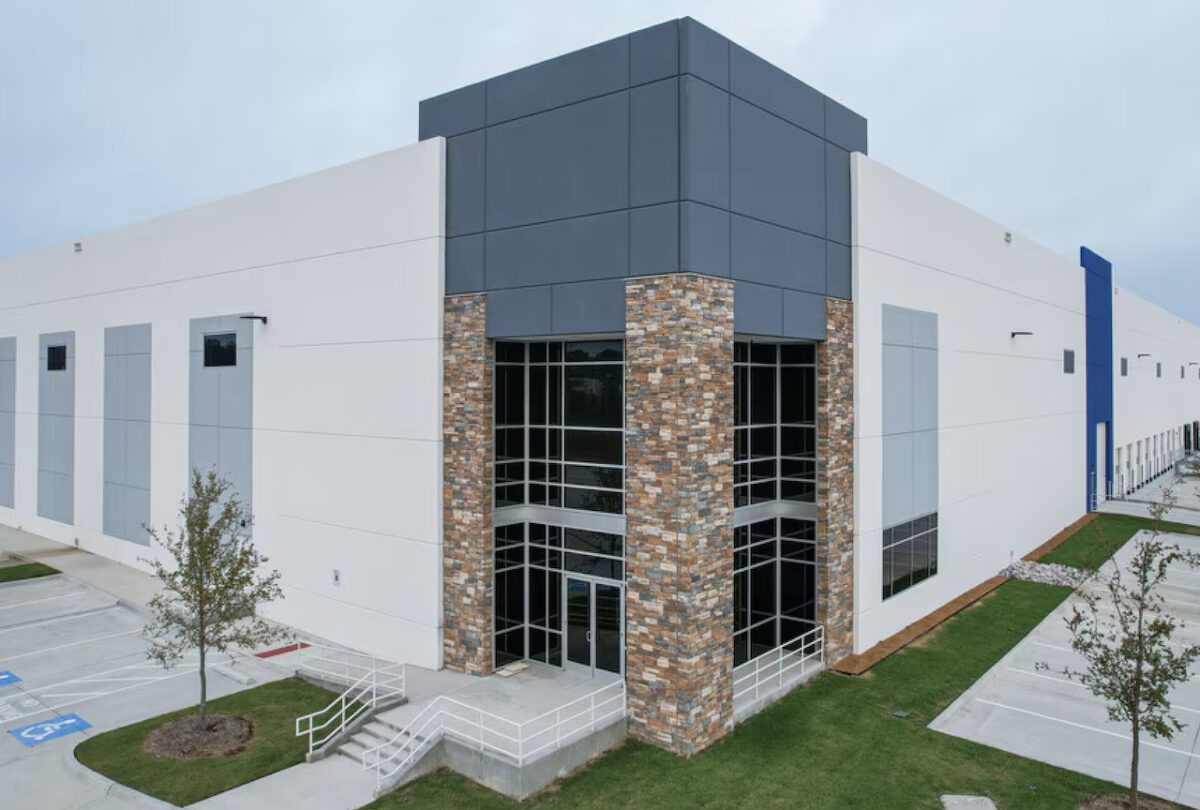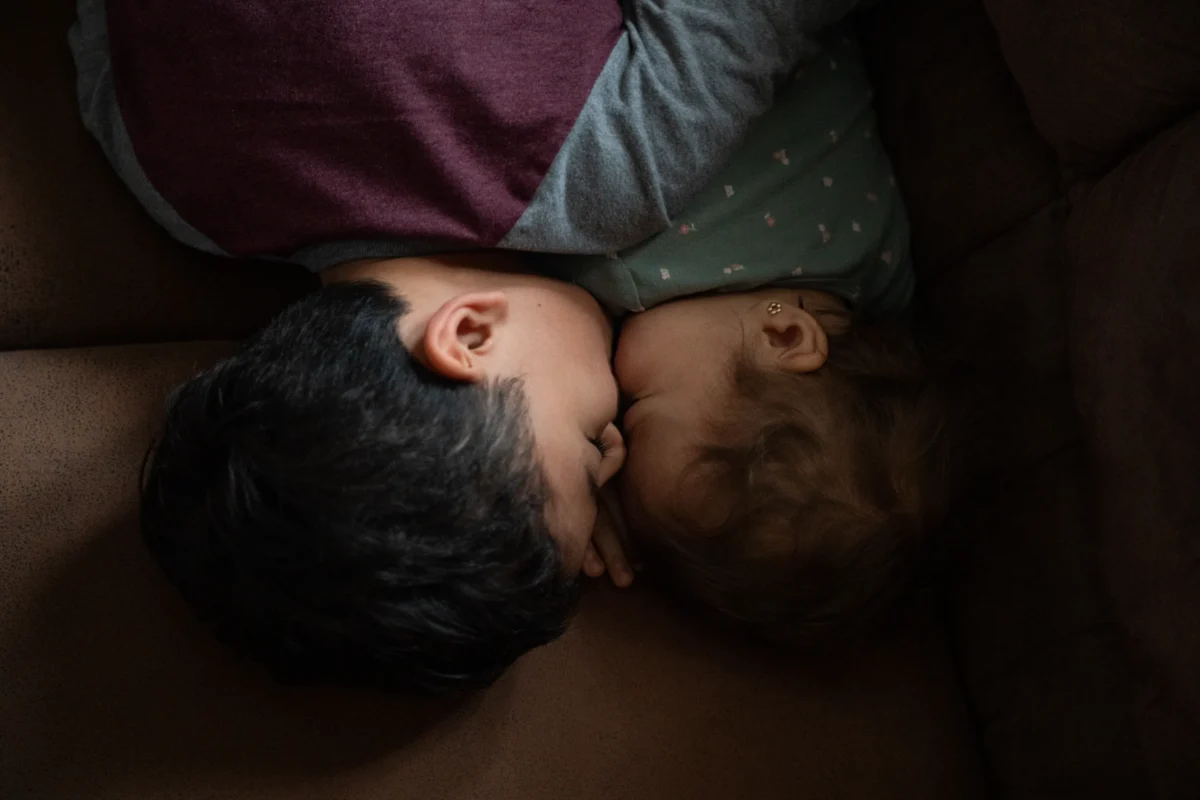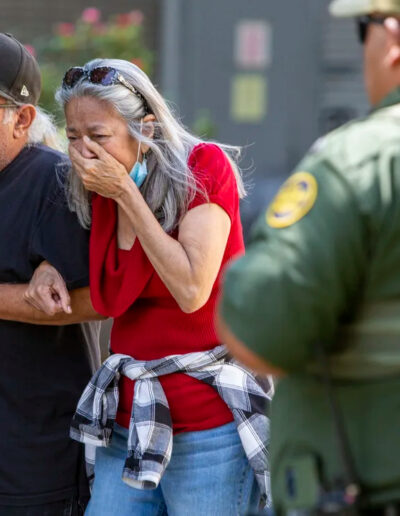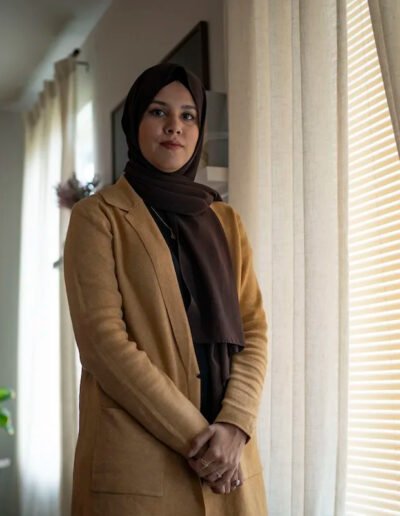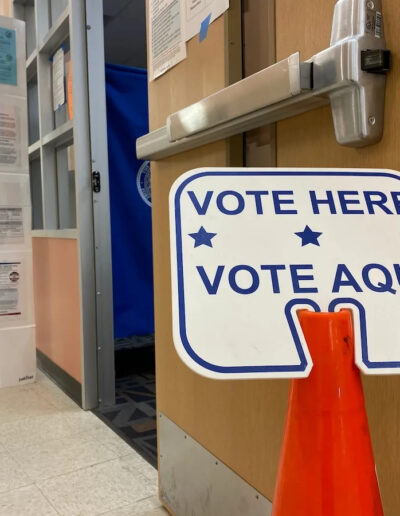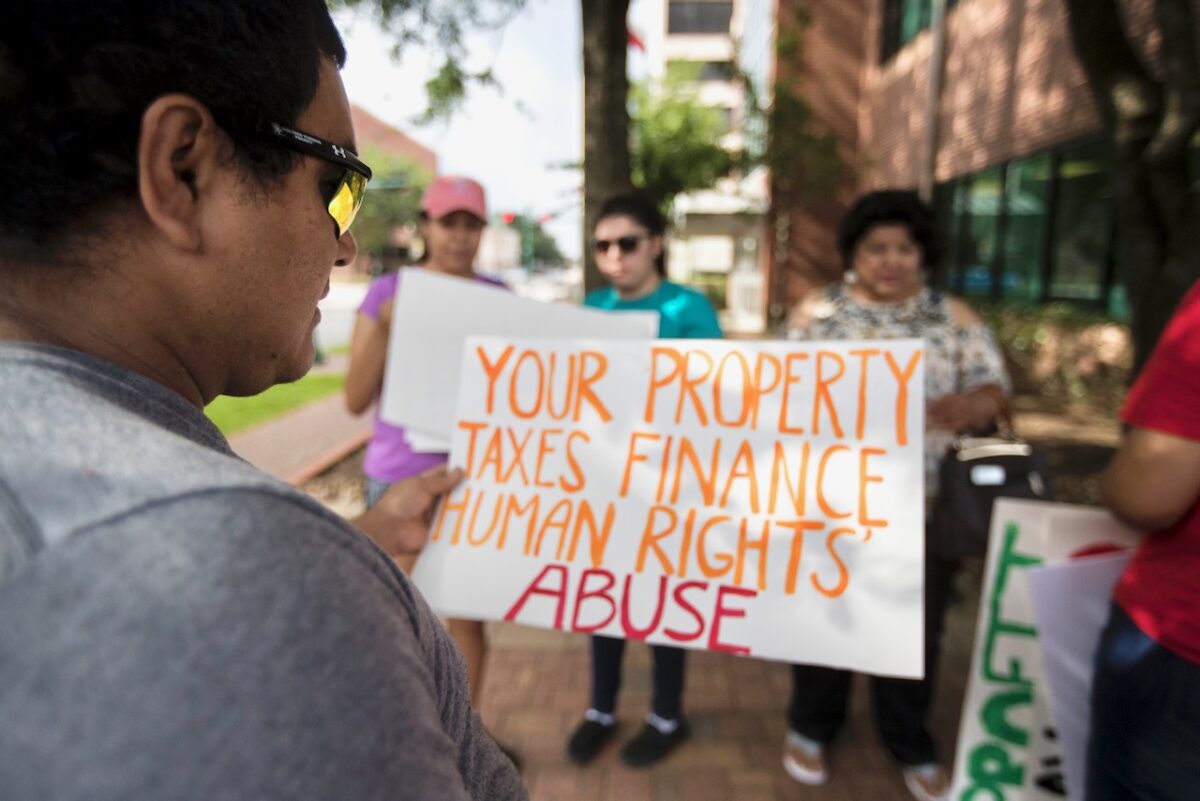
Douglas Menjivar during a protest outside the Joe Corley Detention Facility in Conroe in June 2017. This summer, Menjivar was held in an ICE facility next door for months after he was detained during a routine immigration check in. (Photo by Marie D. De Jesus/Houston Chronicle via Getty Images)
After months in ICE detention and denied humanitarian parole, Douglas Menjivar left the US with his ailing wife, spotlighting the human toll of immigration enforcement.
Douglas Menjivar, a longtime Houston resident married to a US citizen, has voluntarily departed the country after a years-long fight over his immigration status and spending months in a detention facility.
Menjivar and his wife, Monica, left the US on Sept. 19, three months after US Immigration and Customs Enforcement agents arrested Menjivar as he appeared for a routine check during his immigration case, according to Erica Reilly, their attorney and a partner at Benach Pitney Reilly Immigration. A federal immigration officer escorted Menjivar to George Bush Intercontinental Airport, where he met his wife and boarded a commercial flight—at his own expense—and left the US.
“Douglas was struggling mentally and physically with the conditions of his detention,” Reilly said. “Being away from his wife, being back in a position where he had previously suffered harm, not having the medications he was accustomed to, was incredibly difficult for him. Not knowing whether he would be approved, whether he could be approved and still removed to a third country, how long he would be detained, who would take care of Monica was just too much.”
Before he left the country, Menjivar was pursuing a withholding of removal case, which if granted, would have prevented the US from deporting him. He’s been seeking asylum in the US since at least 2013, a journey that Menjivar has said included two violent assaults and mistreatment by ICE agents.
“He has lost what he built here in the United States,” Reilly said. “But at least now he is out of detention and with his wife, no longer dealing with the fear of deportation.”
Monica suffers from serious health complications, including breast cancer, lupus, a skin disorder, and radiation burns. The detention of her husband—he was Monica’s caregiver—strained her health even more. Reilly said Monica was forced to cancel a critical surgery after her surgeon refused to proceed without a caretaker for her at home.
Reilly and other advocates, citing Menjivar’s lack of a criminal record and his wife’s health, submitted three separate requests to ICE to grant humanitarian parole, which grants people temporary status to remain in the US. All were denied.
“He’s done everything ICE has asked of him for the last 10 years and yet he does not qualify for this discretionary benefit,” Reilly said. “If Douglas does not fit the circumstances for discretionary release, then who does?”
Menjivar’s case has drawn attention from advocacy groups, including American Families United, which argue that his case shows that ICE isn’t following its own priorities to focus on deporting people with criminal histories and outstanding warrants. A petition calling for his release gained more than 600 signatures, and an online appeal raised about $3,500 to help the family.
“ICE may claim to weigh family ties and humanitarian considerations, but in practice, we rarely see that taken seriously,” said Kali Pliego, president of American Families United. “The system often treats immigrants as case numbers, not as husbands, wives or parents to US citizens.”
Across the US, ICE is currently detaining nearly 60,000 people, with 71.5% of them having no criminal convictions, according to data from the Transactional Records Access Clearinghouse at Syracuse University. Among those with convictions, many were minor offenses, including traffic violations. Thus far In the Houston area, the Department of Homeland Security has reported 23,857 ICE arrests and 2,843 detainers.
“We’re forced to make decisions without any security whether it’s detention, leaving the US, or trying to stay and follow the law,” Pliego said. “We’ve learned that doing immigration ‘the right way’ often leads to family separation, either through enforcement or denial.”
Menjivar’s immigration case was reopened based on allegations that he received ineffective legal counsel from a now-disbanded attorney. He wanted to appear before an immigration judge and resolve his status lawfully, but ultimately chose to leave the country as his mental and physical health deteriorated in detention, according to Reilly.
Advocates said Menjivar’s case highlights the human cost of immigration enforcement policies that don’t account for family ties and medical hardship.
“It’s people like Douglas who have worked hard, who have a US citizen spouse who spends every day worrying about him despite her own long list of medical conditions,” Reilly said. “He just wanted to be with his wife and now he can.”





